By Ben Wheeler
STUNNING video and photographs showcase the eye-popping British shipwreck that became a grove of trees despite being 330-yards from the coastline and being used for target practice during WW2.
Footage taken by physiotherapist Conor Moore, 24, from Innisfail, Queensland show the fascinating wreckage of the SS City of Adelaide, a passenger steam ship that was launched from Britain on 22 December 1863, was wrecked by a fire in 1912 and is now part of the island’s ominous shipwreck trail.
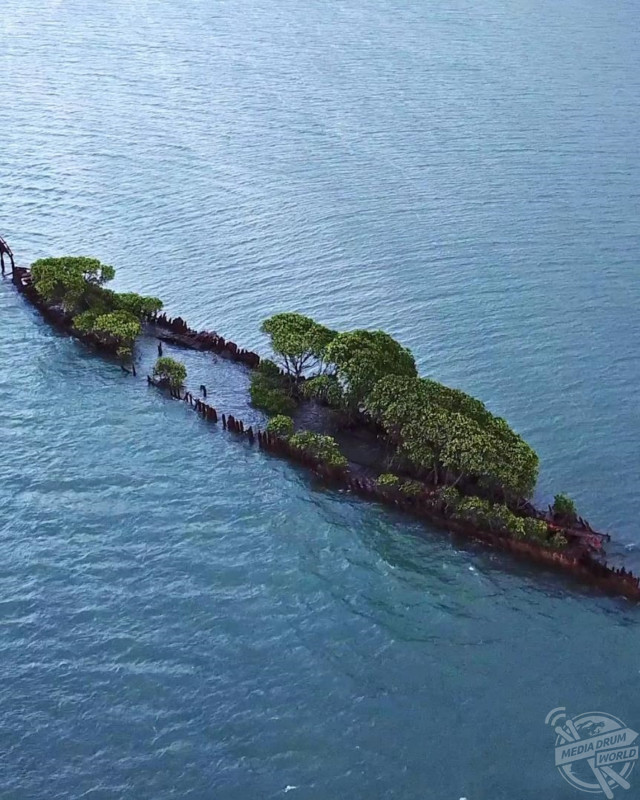
“The main attraction was the shipwreck trail around the island. Each of the twenty known shipwrecks fascinated me with the history and photographic opportunity,” said Conor.
“The morning I that I went out to shoot the shipwrecks it was very windy. I’d been to Hawkins Point, one of the highest parts of the island, and couldn’t launch my drone out of fear it would be blown out to sea.
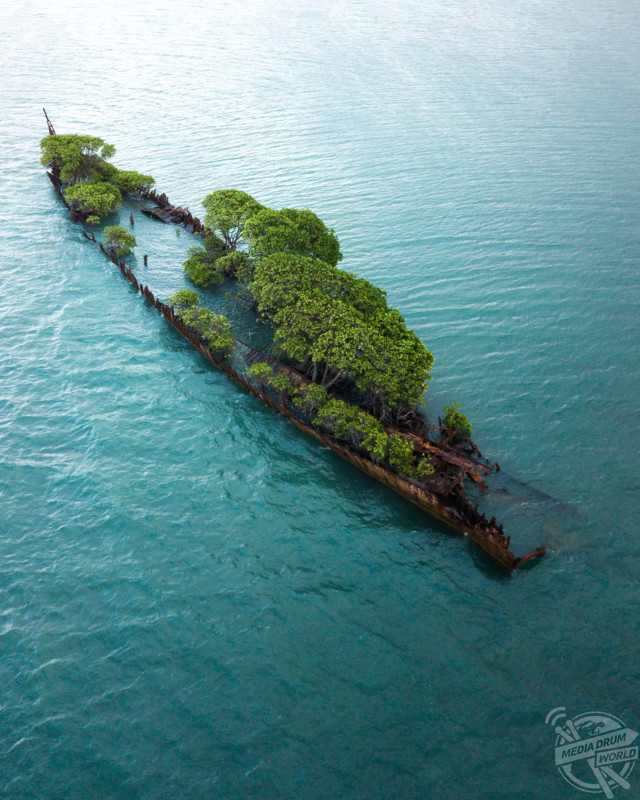
“In the end we went around to the more protected Cockle Bay to check out the SS City of Adelaide.
“We stayed on Magnetic Island for three days and two nights but in hindsight I definitely needed at least a week to be able to see everything.
“There’s an extensive trail network, beautiful beaches, diving opportunities, water sports and even some Second World War history in the form of two forts at the top of the island.
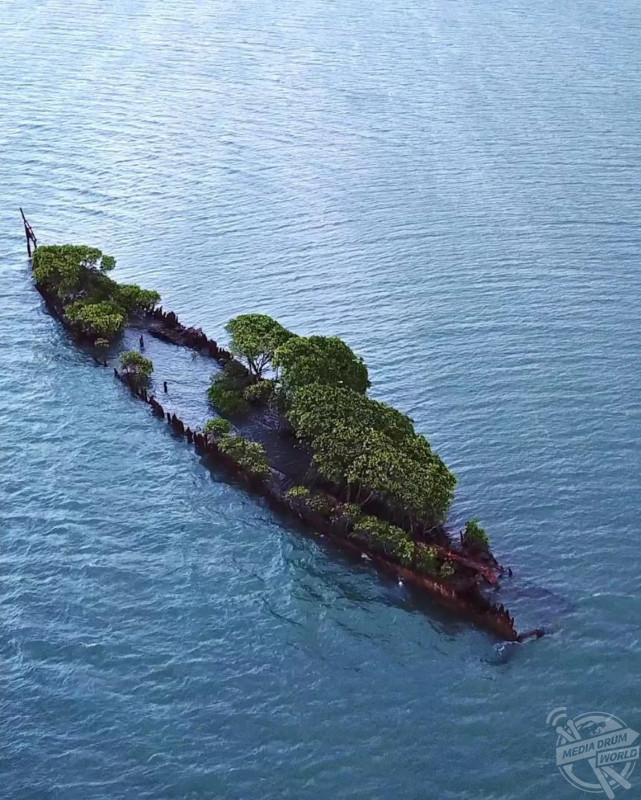
“There’s so many amazing things to see and do that I could only recommend that you give yourself enough time to spend in paradise.”
Magnetic Island sits just five miles offshore from the city of Townsville, Queensland and is named as such because of its supposed ‘magnetic’ effect on the compass of Captain James Cook’s ship as he passed the island in 1770.
Despite numerous searches of the island to discover the reason behind Cook’s reports, nothing that could’ve caused this effect has ever been found.
In later years, the island became an important defensive position during the Second World War, due to its proximity to Townsville, which was a crucial military base for the Australians.
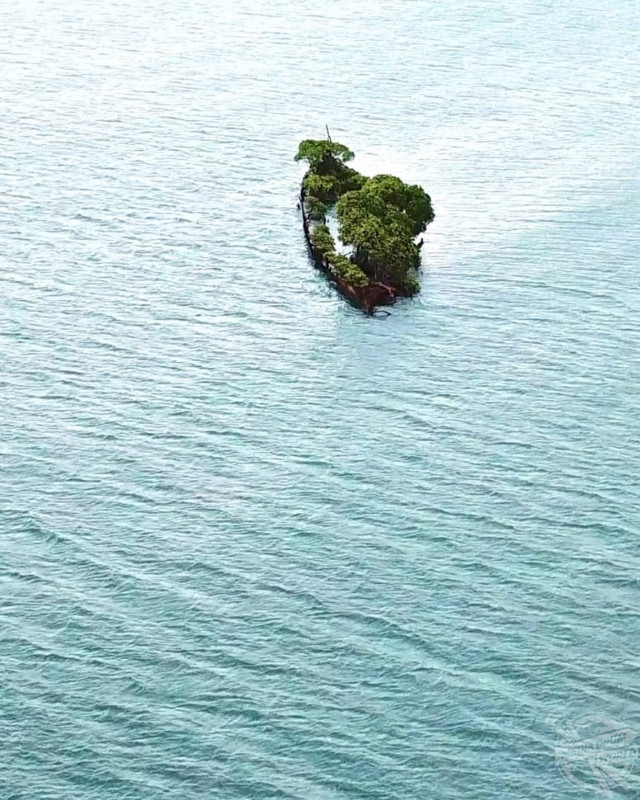
However, disaster struck in October 1942 when the SS City of Adelaide was used as a practice target by the Royal Australian Air Force (RAAF) bomber pilots.
Several aircraft dived upon the wreck in a vee formation, but one accidentally struck the ship’s mast, proceeding to crash in the shallow waters around 700 meters from the vessel and instantly killing the three RAAF officers and one US Navy officer on board.
The Adelaide had been commissioned by the Australian Steam Navigation Company and was built in Govan, Glasgow by J & G Thomson.
During its time in service, the vessel ran passenger services between various locations such as Melbourne, Sydney, Honolulu and San Francisco before being retired in 1885.
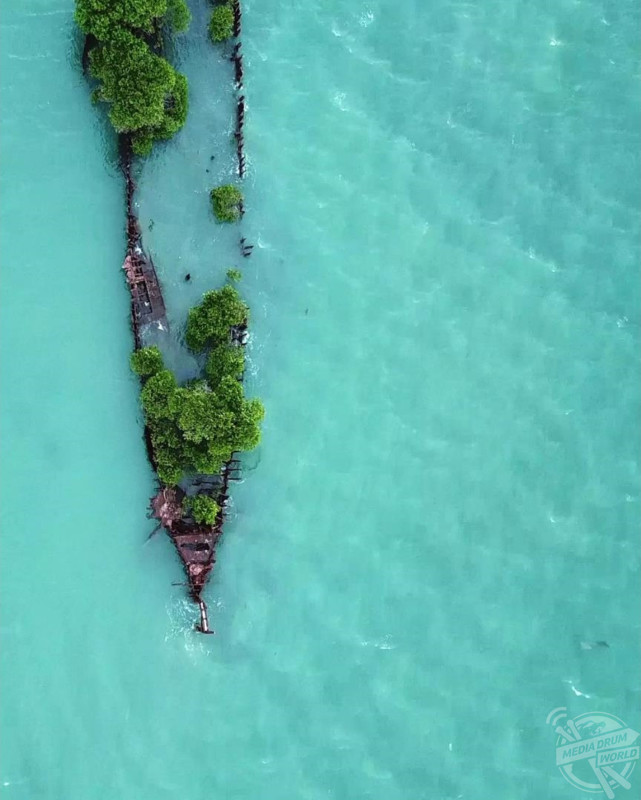
The ship was then passed to a succession of private owners, finally being used as a hulk for coal storage at the time it caught fire.
The Adelaide is said to have burned for a number of days before the flames were extinguished. The burned wreckage was bought by George Butler, the son of the island’s first European resident, in 1915.
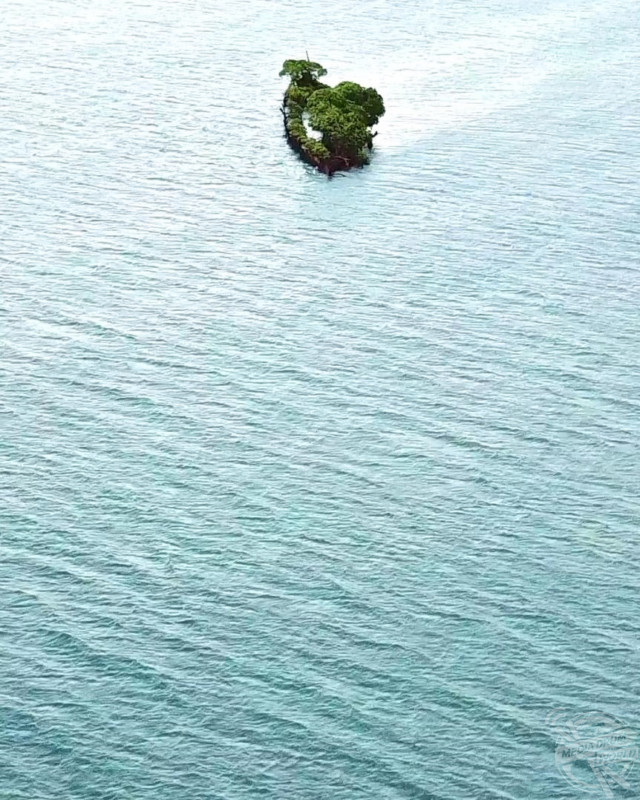
Butler had attempted to float the remains of the vessel to Magnetic Island’s picnic bay in order to provide a breakwater for a jetty, but unfortunately the ship ran aground at Cockle Bay where it has remained ever since.
The ship has since become an artificial island in its own right, hosting a variety of plant and bird life just 330-yards off the shore.






